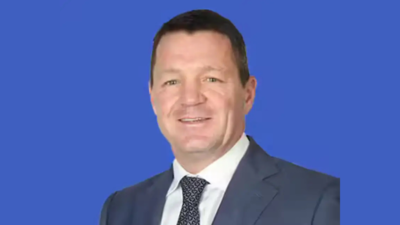ARTICLE AD BOX

NEW DELHI: “I know the opportunity is huge. The only thing I don’t know is how huge.” This is what IndiGo co-founder Rahul Bhatia had three years back told Pieter Elbers, then KLM president.
That was the time the domestic market leader had set its sight on spreading its wings in the international skies.
Last week, IndiGo started its first flights to the UK and Europe using wet leased (hired with pilots) wide body planes and will now grow its long hauls aggressively. After Jet Airways’ collapse in April 2019, Air India was the only Indian carrier with twin aisle aircraft in its fleet for nonstops across the world.“You find Indian travellers all over the world. But for very long, (a vast majority of them) have been deprived the opportunity to fly an Indian operator,” Elbers, who joined IndiGo as CEO in Sept 2022, told TOI after the inaugural Mumbai-Amsterdam flight touched down in his home country. In the last 2.5 years, Bhatia and Elbers have been executing a strategy to change this. Asked where is the airline in its plan to become a global airline by 2030, he said, “We’re half way through.
”The post-Covid travel boom made desi carriers realise they needed to get a bigger slice of the international travel pie to and from India. This was enabled by the mega Tata Group acquiring Air India & AI Express in Jan 2022 and well-capitalised IndiGo deciding to replicate its domestic success in international skies along with a big boost in the country’s airport infra.“The fact that we are touching down now in Europe is a big thing because of a number of firsts for us — flying long haul, serving hot meals and having stretch on international flights.
So it is much more than just two new destinations in Europe. It is the start of a very new chapter in the book of IndiGo. When IndiGo started in Aug 2006, Rahul Bhatia had a certain vision and he created that (making IndiGo India’s biggest domestic airline),” Elbers said.Three years back when he met Elbers, Bhatia started making moves to replicate IndiGo’s domestic success in the international market too. Their ambitions were on the same trajectory as that time Elbers was looking to be part of something that had the potential become really big.“All the things we have been doing (since 2022) were building blocks to making IndiGo a global airline. These steps are not just individual or random. They are all part of a holistic plan.” These “building blocks” include starting Stretch (or business) on some domestic flights since last Nov “we have some experience in serving serving (premium) customers when we go to Europe. The loyalty programme was started to have corporates and SMEs on board,” he said.The focus on internationalisation comes from an aspirational India’s prowess as an economic giant with a booming GDP, middle class and spending power. “When IndiGo was was created 18 years ago, there was a vision and there was a relentless execution of that vision. What we see now (international growth) is, I believe, a bit similar to what we had seen then.”IndiGo currently has one wet leased Boeing 787 from Norse Atlantic which is being used on the Mumbai - Amsterdam and Manchester routes.
It will get three more B787s this calendar year and then two early in 2026. The Dreamliner routes announced so far include London and Copenhagen. The airline expects to start getting its single aisle Airbus A321XLR (extra long range) from this year which will be used for routes like Athens, Delhi-Bali and southeast Asia.
The closure of Pakistani airspace meant Mumbai got the first two flights to Europe as flights between Delhi and the west are much longer these days.
When the Pakistan airspace opens, Delhi will also get flights.“You have seen our network over the past few years. How we expanded at both Delhi and Mumbai. And even Bangalore and Hyderabad. We’re not a single hub operator. We have multiple origins — Delhi, Mumbai, Hyderabad, Bangalore. They all have their own kind of focus areas, and and even even natural flows.”IndiGo has 30 wide body A350s on order whose induction will start in 2027.
Given the fact that aircraft delivery delays continues due to supply chain constraints, will IndiGo wet lease more wide bodies to augment its international capacity. “We are not ruling out any opportunity or any chance. We keep looking and keep evaluating options,” Elbers said.IndiGo has seen a large number of its Airbus A320 grounded for years due to Pratt & Whitney engine issues. The peak aircraft grounding number on this count was 79 and the same is down to 30s.
Then post Covid supply chain challenges meant slower deliveries of everything right from planes, engines, seats, components and parts. “Overall, we still have supply chain challenges. But our big order book (IndiGo was yet to receive 916 of the ordered Airbus planes as of last month) helps us average out deliveries.
I don’t want any delays, but the reality is what it is. I still hope and am cautiously optimistic that we'll have our first A321XLR before the end of this calendar year,” he said.While North America is on IndiGo’s radar, the CEO says he will first like to “make sure that we are well positioned in Europe. There still are parts of Asia where we don't have any operations like Japan, Korea. And there’s Australia too. With our partners Delta and, we will connect passengers to 20 North American cities (from Amsterdam),” he said.



.png)
.png)
.png)
















 13 hours ago
5
13 hours ago
5









 English (US) ·
English (US) ·